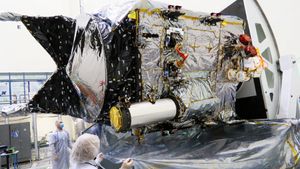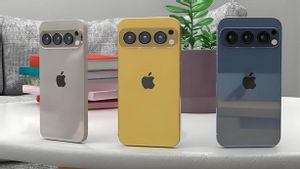JAKARTA - Critics have been busy writing negative reviews of Meta's metaverse dreams over the past few years. However, Mark Zuckerberg's latest demonstration of its photorealistic avatar shows that this dream may still be far from dying.
Appearing in the Lex Fridman podcast episode on September 28, Zuckerberg and the famous computer scientist were involved in a one-hour face-to-face conversation. However, their conversation didn't actually take place in the real world at all.
In contrast, the entire conversation of Fridman and Zuckerberg uses photorealistic avatars in the metaverse, which is made possible through Meta Quest 3 headsets and noise-cancing headphones.
Often observers joked about making fun of Meta for spending billions of dollars in metaverse research just to produce cartoon avatars and strange footwear.
However, in this regard, social media users, including those from Crypto Twitter, seem quite impressed by the advancement of this technology.
"Okay, the metaverse is officially real," wrote Gaut's pseudonym account, a rare moment of praise that seems sincere from users who are usually known for his satirical and sarcastic comments about the latest news.
9 minutes after Lex / Mark's podcast in the metaverse, I forgot I was watching the avatar, "wrote collider Jelle Prints.
Fridman also shared his impressions about the experience in real-time, noting how close he felt with Zuckerberg during the interview. Moments later, he explained how difficult it was to identify that Zuckerberg's avatar was not his physical body.
I've started to forget that you are not a real person. The technology that is displayed is the latest version of Codec Avatars.
First revealed in 2019, Codec Avatars is one of Meta's longest research projects aimed at creating photorealistic and real-time avatars that work through headsets with face tracking sensors.
اقرأ أيضا:
"However, users may have to wait a few years before they can use their own realistic avatars," Zuckerberg said, explaining that the technology used requires expensive machine learning software and complete head scans with camera equipment of more than 100.
"It still takes at least three more years before it is available to consumers on a daily basis," he said.
However, Zuckerberg noted that the company wants to reduce barriers as much as possible, explaining that in the future, this scan may be possible with a regular smartphone.
The latest demo comes a day after Meta launched Meta AI, its latest artificial intelligence assistant, which is integrated through various chatbots, apps, and even smart glasses.
The English, Chinese, Japanese, Arabic, and French versions are automatically generated by the AI. So there may still be inaccuracies in translating, please always see Indonesian as our main language. (system supported by DigitalSiber.id)















